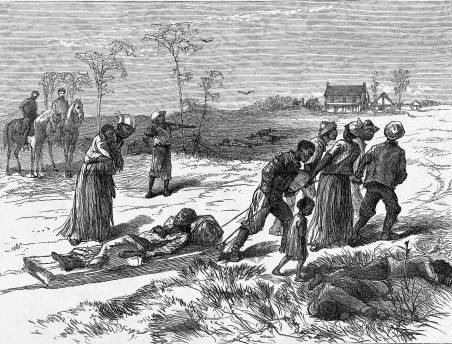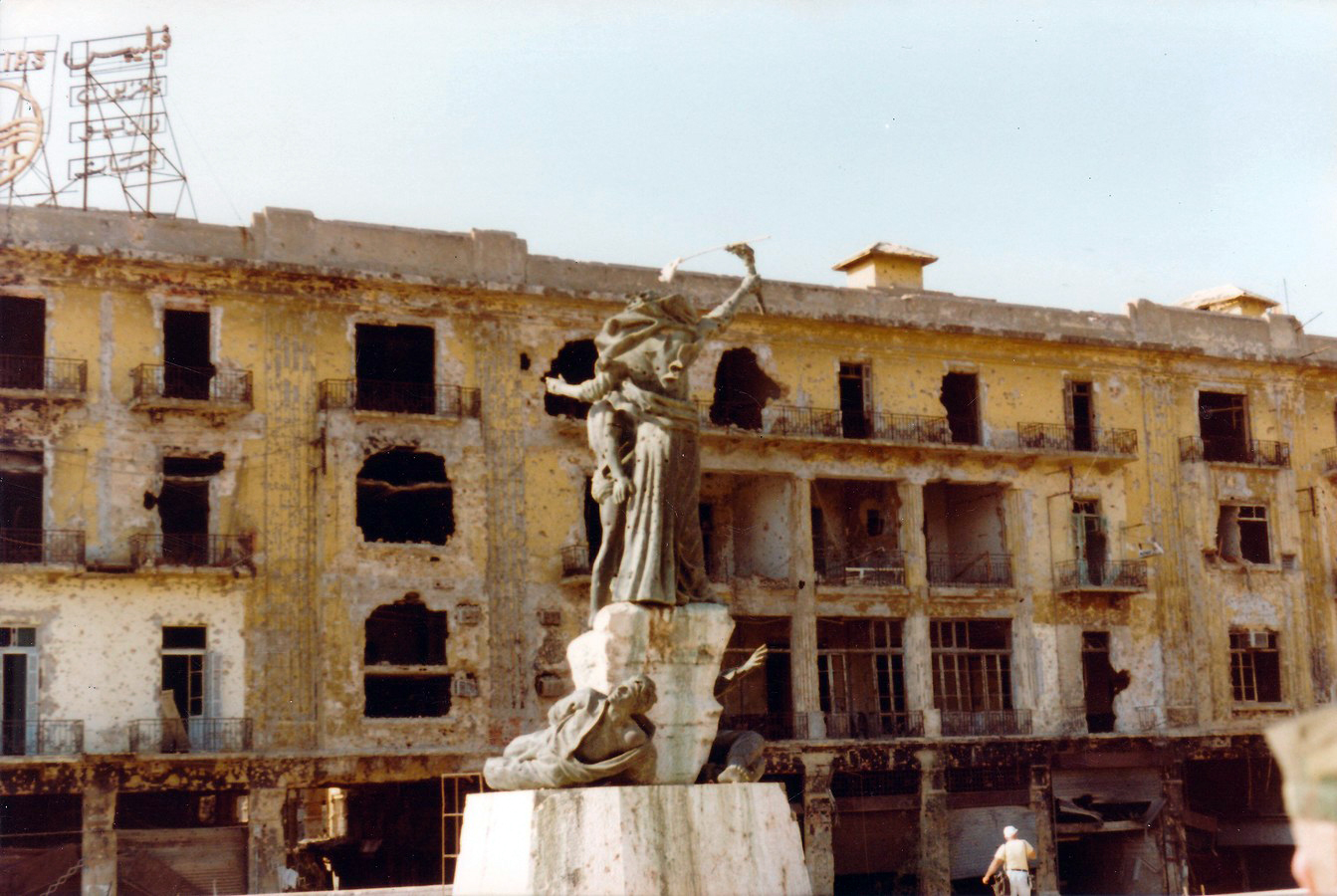Today in Labor History April 13, 1570: Guy Fawkes was born on this day. He planned the Gunpowder Plot in order to to restore the Catholic monarchy. They wanted to blow up the House of Lords and assassinate King James I in hopes of inspiring a popular uprising. However, someone squealed. And the authorities found Fawkes guarding 36 barrels of gunpowder. They convicted him and eight others. And they sentenced them to be hanged, drawn and quartered.
1800s

Harper’s Weekly, May 10, 1873. By Unknown author. Pub. Dom.
Today in Labor History April 13, 1873: A mob of former Confederate soldiers and current KKK members murdered 60-153 black militiamen, as they were surrendering. The militiamen were guarding the Colfax parish courthouse, in Louisiana, in the wake of the contested 1872 election for governor. Violence and fraud were common in Southern elections during Reconstruction. The Colfax massacre was the worst act of racist violence during Reconstruction.
April 13, 1885: György Lukács was born on this day. He was a Jewish-Hungarian Marxist philosopher.
Today in Labor History April 13, 1892: The Johnson County War occurred on this day. Rich cattle ranchers tried to monopolize Wyoming land for their own private profit. They hired gun thugs to intimidate homesteaders. The settlers fought back and built a dynamite-laden wagon. The U.S. Cavalry had to rescue the ranchers’ hired thugs from the settlers’ “Ark of Vengeance.”
April 13, 1894: The Great Northern rail strike began in Helena, Montana. It quickly spread to St. Paul. Eugene V. Debs, president of the American Railway Union, led the strike. Workers succeeded in shutting down most of the critical rail links. Consequently, the owners gave in to nearly every one of their demands. As a result of the strike’s success, thousands of rail workers joined the new union.
1900s-1910s
Today in Labor History April 13, 1903: International Hod Carriers & Building Laborers’ Union was founded on this day.
April 13, 1907: IWW workers struck in the New Jersey Silk Company, in Patterson. They won a wage increase. Workers in the Kramer Hat Company, also in Patterson, went on strike when a man refused to join the IWW union there. After one day of striking, the hold-out joined the Wobblies.
April 13, 1919: The German military attempted a coup against the Bavarian Republic of the Workers Councils. Anarchists led a successful counter attack.
1930s
Today in Labor History April 13, 1930: Jimmy Hoffa led his co-workers in a successful job action at a Kroger warehouse in Clinton, Indiana. He was only seventeen. Employees had to report to work at 4:30 a.m., work 12-hour shifts, and were paid only 32 cents an hour. Plus, they had to spend 75% of their earnings at Kroger.
1950s-1960s
April 13, 1953: CIA Director Allen Dulles launched the MKUltra mind control program. The program ran from 1953 to 1973. Researchers gave human subjects LSD and other drugs, often without their knowledge. Then they would try to “weaken” their minds and force confessions through brainwashing and psychological torture. Allen Ginsberg and Ken Kesey volunteered for the program.
Today in Labor History April 13, 1963: Sidney Poitier became the first African American to win an academy award for best actor. He won for his role in Lilies of the Field.
1970s

April 13, 1975: Phalangists in Lebanon killed 26 members of the Popular Front for the Liberation of Palestine. This marked the start of the 15-year Lebanese Civil War. 120,000 people died in the war. And nearly one million people fled the country. One of the worst atrocities of the war was the Sabra and Shatila massacre. Lebanese Phalangists, allied with the Israeli Defense Force (IDF), slaughtered 3,500 Lebanese and Palestinian civilians. IDF soldiers facilitated the slaughter by blocking exits and preventing civilians from escaping. In 1983, the Kahan Commission found Ariel Sharon personally responsible for the massacre. He resigned as Defense Minister and then became Prime Minister.
Today in Labor History April 13, 1976: An explosion killed forty workers at the Lapua ammunition factory in Finland. This was the deadliest accident in modern Finnish history.
2000s
April 13, 2017: The U.S. dropped the largest ever non-nuclear weapon on Nangarhar Province, Afghanistan.





